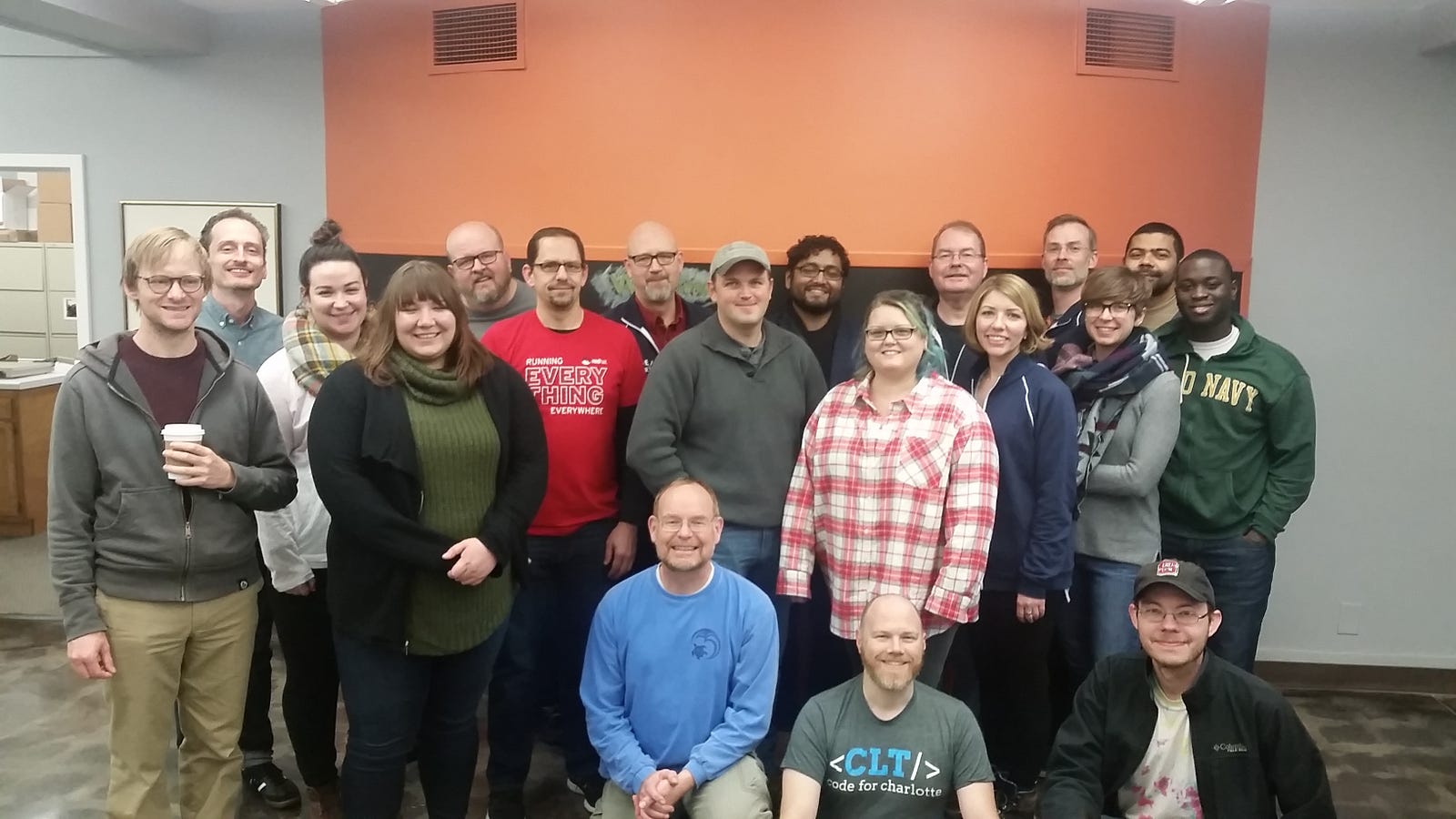
NC Brigade leaders create the Open NC Collaborative
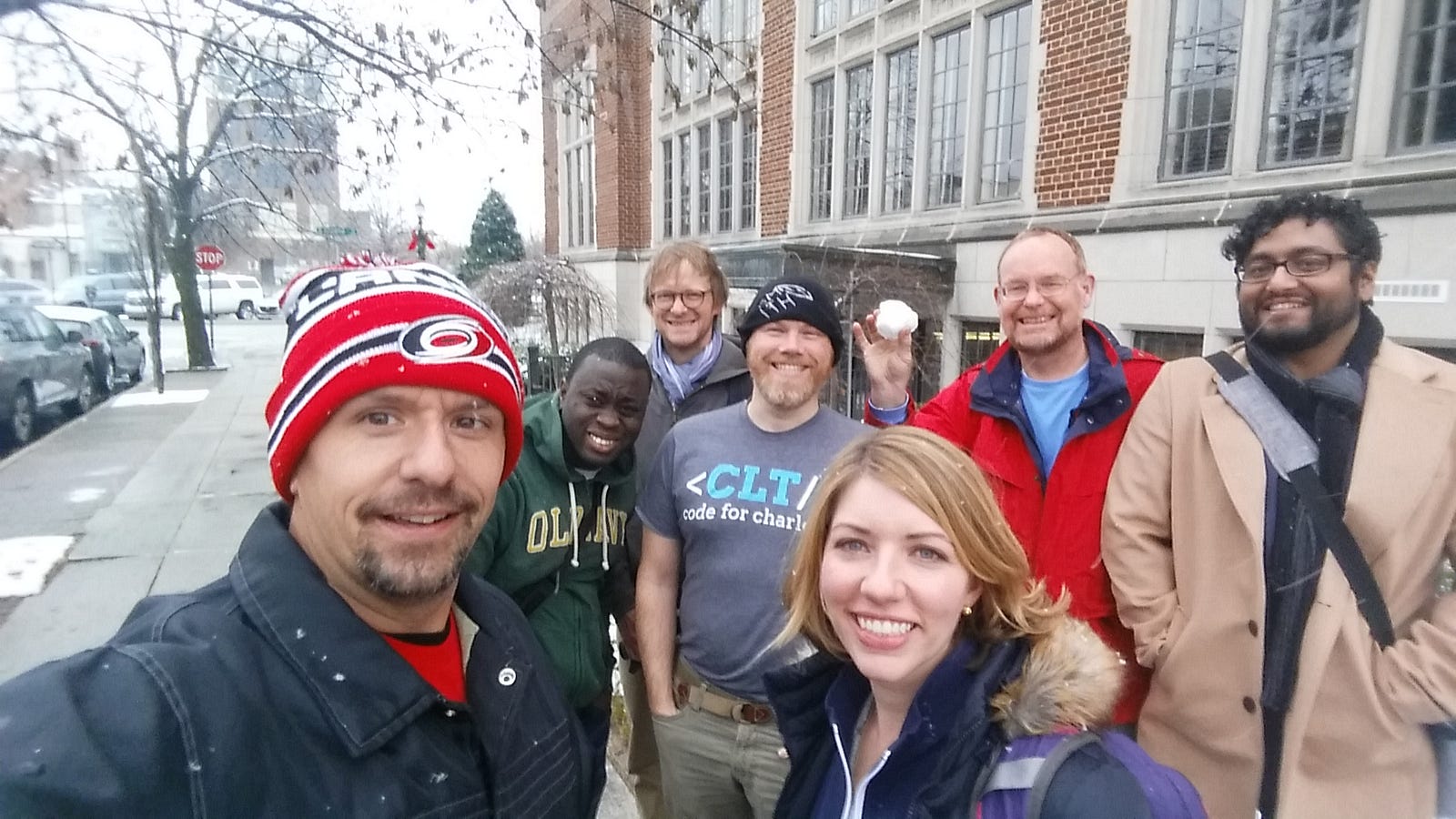
NC Brigade leaders meet in Greensboro, NC
NC Brigades aim for increased collaboration in 2018
Sleet and rain was falling in Raleigh, while the Triad was getting dusted with light snow creating a southern winter wonderland. Leadership from the Asheville, Cary, Charlotte, Durham, Greensboro, and Raleigh Code for America brigades gathered in a snowy Greensboro on December 9, 2017 to discuss the future of civic tech in North Carolina.
There were 18 leaders from all over the state and our kind hosts from Code for Greensboro (thank you). One of the most important discussions we had was how to better collaborate on projects across brigades. This was timely for several reasons.
- We have several projects in NC that have started down this path. Code for Asheville and Code for Greensboro have been working on the NC Reentry Resources project. The project aims to gather accessible, accurate, and safe information on resources for those returning to the community after a period of incarceration or suffering the consequences of a criminal conviction on their record. While the project has roots in Asheville, NC Re-entry will have information for all 100 counties in North Carolina.
- Asheville, Durham, and Greensboro are joining forces to combine the efforts from Greensboro’s Go Vote GSO project with the Are we represented? team that spawned out of this year’s CityCamp NC event and competed in the NC DataPalooza finale. This will be one of the key projects for the NC Brigade collaborative effort in 2018.
- The Open Data Policing Project was originally developed by Code for Durham in collaboration with the Southern Coalition for Social Justice. Initially used in Durham and then Fayetteville, the site has most recently had positive impact in Asheville.
- Through the Code for America National Advisory Council (NAC), I’ve been working on building a framework for Brigade Action Teams (BAT). Essentially, it’s a framework that provides best practices to propose, configure, and conclude a Brigade Action Team to allow the freedom to cross-pollinate, collaborate, and work together on initiatives to advance our communities.
NC Brigades choose to adopt the Brigade Action Team framework and modify it for our statewide collaborative efforts. One of our actions is to apply this framework to the Are you represented? Team and set-up the infrastructure and communications for success.
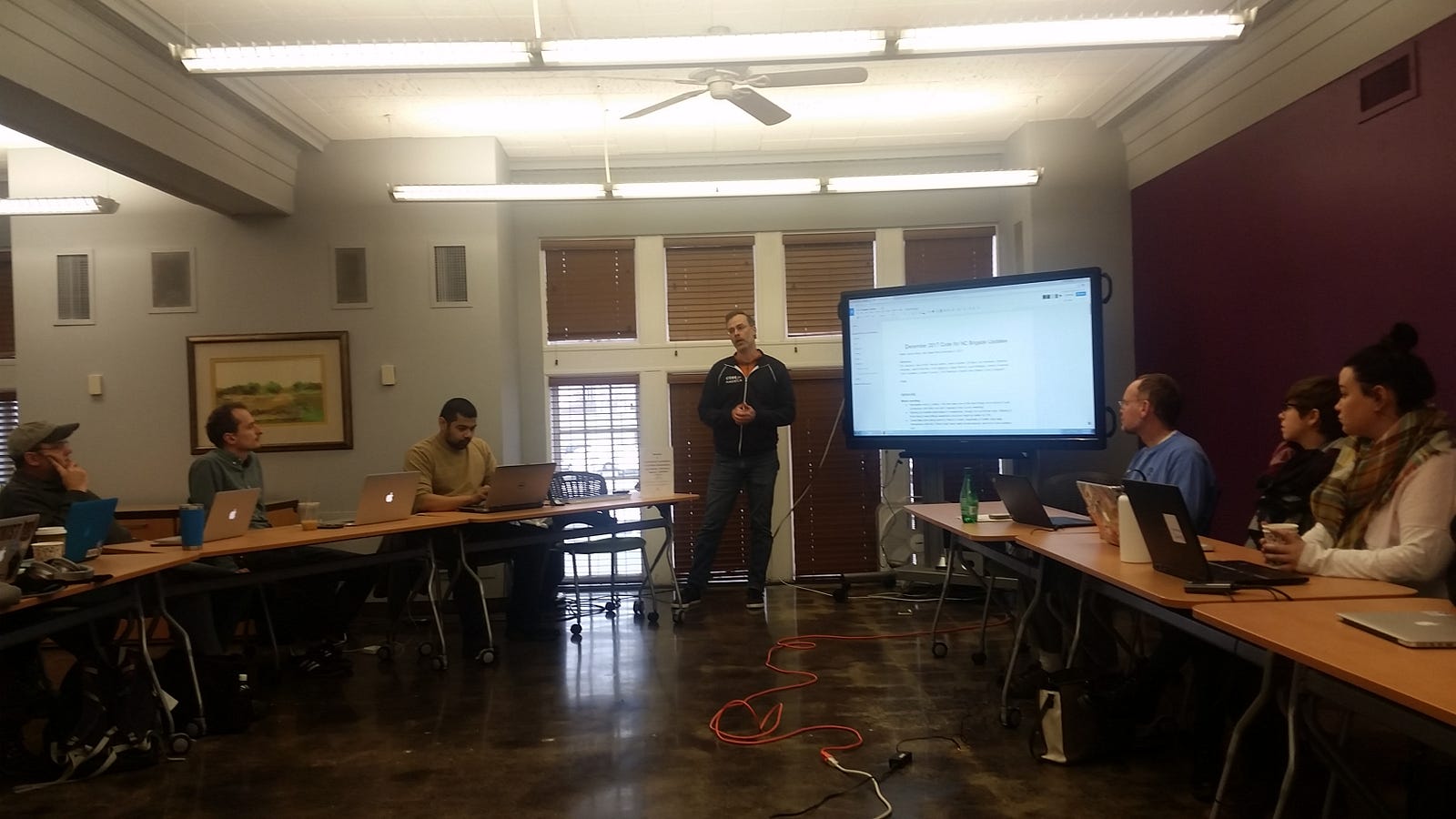
Jason Marshall welcome NC Brigade leadership to Greensboro
A key decision on what is Code for NC?
One of the major discussion items we wanted to resolve was to make some decisions about what Code for NC is and what we want it to be. First we concluded that we want Code for NC to be a thing. Up to this point, it’s been just a loose collection of projects and an informal relationship between the NC brigades. We are advancing this relationship as the Open NC Collaborative.
Open NC Collaborative is born
The Open NC Collaborative was born on December 9, 2017 at 11:35 am ET. The NC Brigades want our work and collaboration to be more than the sum of our parts. Our working mission statement for the Open NC Collaborative organization is the following:
“We are a collaborative group of North Carolina Code for America Brigades working to leverage our work to serve the people of our state.”
A big part of our discussion around this draft mission statement was the need to build projects collaboratively and deploy statewide. We recognize that most of the major urban areas have open data portals and our rural areas lack the type of tech-savvy support provided by the brigades. We would very much like to avoid the potential for digital divide with open data.
Projects that fall under the Open NC Collaborative need to impact the whole state, not just the local communities of participating brigades. Current examples include Open Data Policing and the NC Reentry Resources project, with Go Vote GSO and Are We Represented? likely to be added.
Other key topics
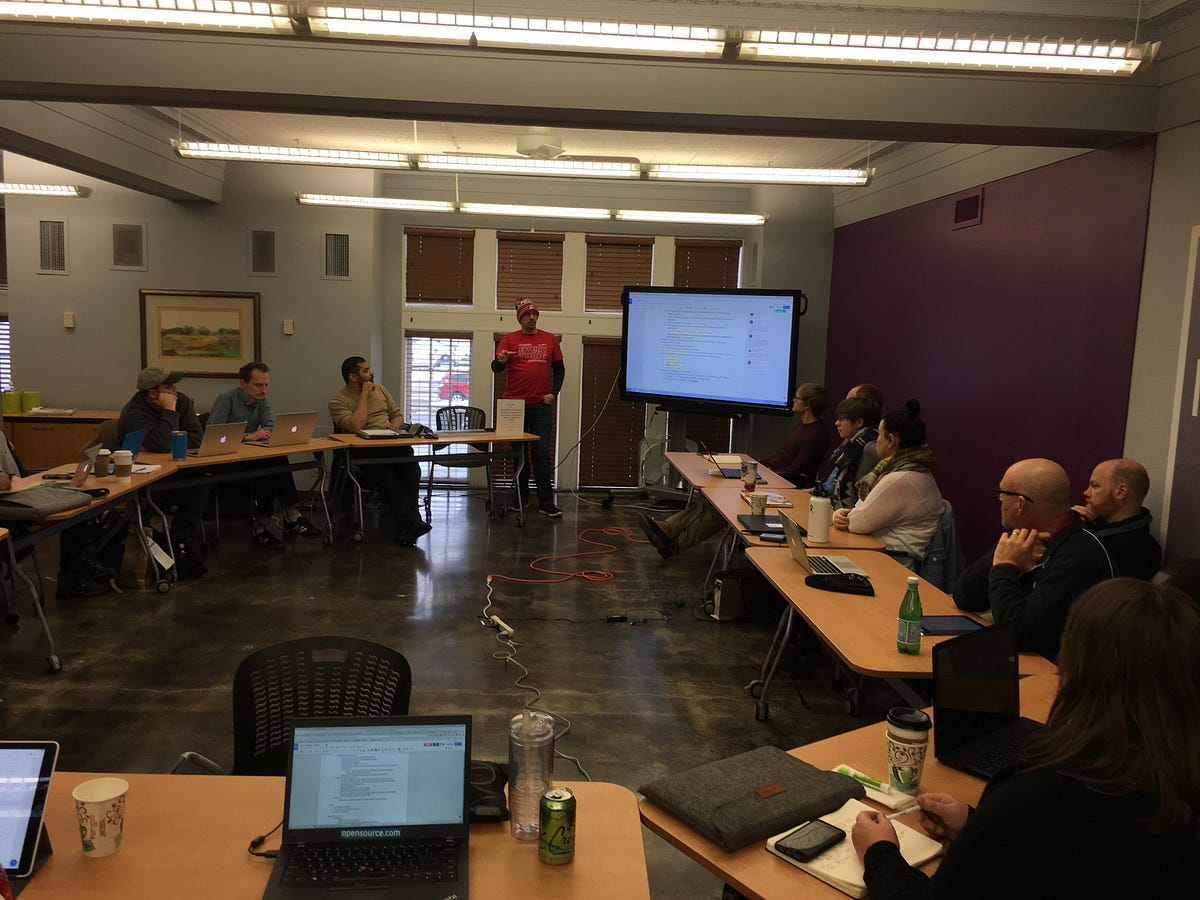
Jason Hibbets describes the Brigade Action Team framework
There were several other key topics we wanted to discuss in person: Fundraising, collaborative events, and distributed operations. We broke out into three groups and discussed the topics in breakout sessions. Then we came back together as a group and went over the key discussion points from our breakouts. I won’t go into the details around this discussion, but you can view them in our meeting notes.
Here’s to a more collaborative 2018
We ended our Saturday afternoon by drafting a list of actions we want to take in order to act on the discussions we had from the meeting. After the meeting, I created a new leadership tasks repository to track all of the actions for the group. We’ve already renamed the Code for NC organization to Open NC Collaborative and many tasks are in progress.
The NC Brigades have a tremendous opportunity to work with our communities, work on important issues, and work collaboratively to meet the challenges facing our entire state in 2018 and beyond. I’m very proud of the work we are doing and looking forward to the work that needs to be done.
NC Brigades are excited to work together to advance the civic tech movement to build a stronger North Carolina.
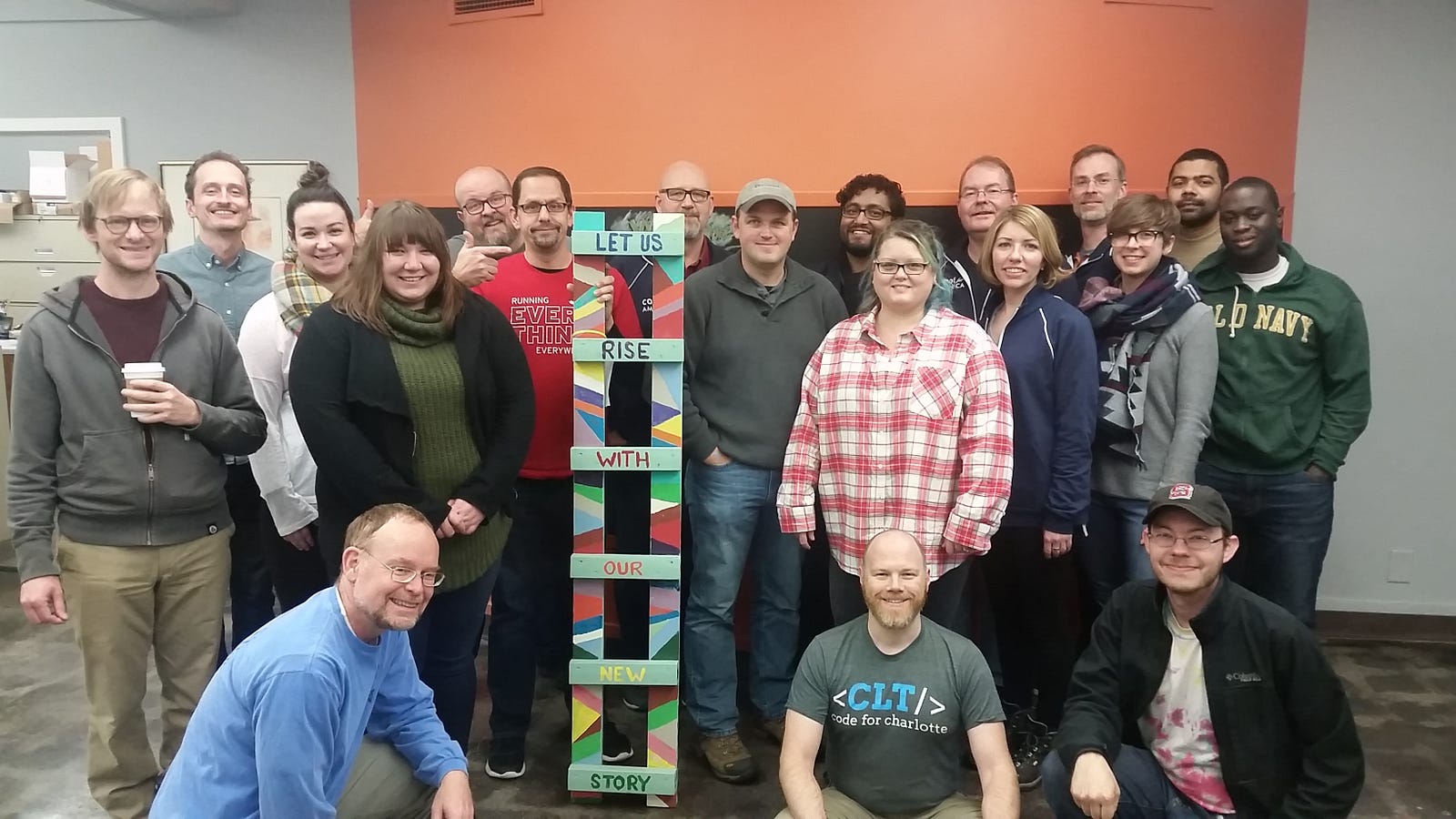
“Let us rise with our new story”
Shared under the Creative Commons BY-SA license.

